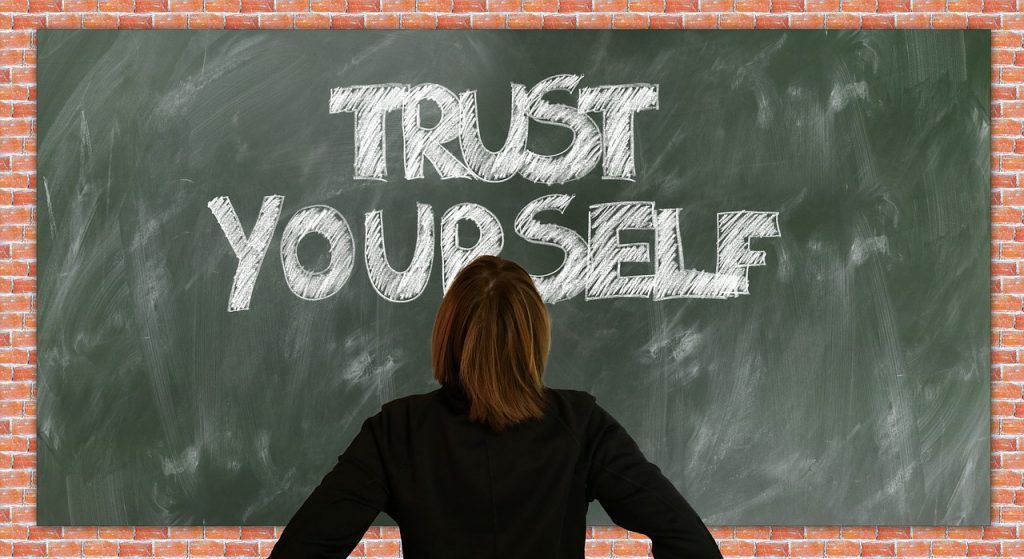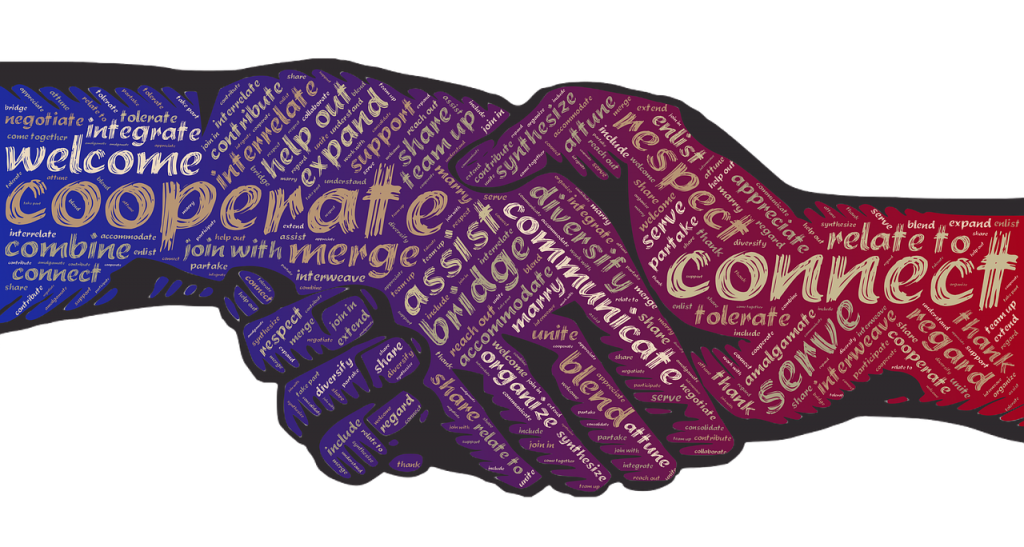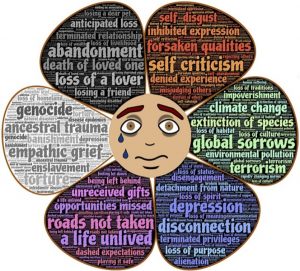
Reflections on Traveling by Car


How Those Around You Influence Your Success

Let’s talk about those who influence your success… or don’t.
Imagine you grew up in a household of lazy underachievers. Now imagine you grew up in the household of high achievers. Do you think you’d be different depending upon the home you grew up in?
If your family cheered you on, encouraging you to be your best, you probably left home feeling confident about yourself.
If your family was negative, chances are you struggled inwardly about your prospects and your success no matter how talented you are.
You can’t change your past, but you can change the influence it had on you. You do this by surrounding yourself with supportive high-achievers as well as people who believe in you.
Think about the people you know. Are they supportive or non-supportive? Some people pretend to be supportive but then whisper doubts into your ears. That’s not support no matter what they may claim.
Find people who support you.
If you want to succeed in business, find people in your area of interest who can give you support. Yes, they tell you the truth AND they encourage you to reach for your dreams.
If you want to succeed in establishing good relationships, be with people who have good relationshisps
The people around you matter. With whom are you spending your time? Are you choosing to spend time with those that inspire and support you? Are you spending time with people that struggle with life and sabotage your best efforts to excel?
You have to power to choose the people you spend the most time with. Choose intelligently and you’ll experience greater levels of success.

You may know people who seem to be brimming with self-confidence. Recognize that you can observe what they’re doing, not what they’re feeling. It’s possible their insides don’t match their outsides. You can learn to trust in yourself even when you aren’t filled with self-confidence.
Back when I was in the convent, I was in charge of a particular function. The next day someone complimented me on how much confidence I exhibited. She wished she was like me.
I could have laughed out loud. Today, I would have. Back then, I wasn’t going to let anyone know how terrified I had been.
Having confidence in yourself is about trusting yourself, trusting that you’ll be able to handle the job, whatever job that is.
You may have a difficult time trusting yourself and wonder if you’ll ever be able to. Don’t think you’re alone in your self-doubts. Not trusting yourself seems to be ingrained in the human condition. It’s something many experience and find difficult to overcome.
Learn to Trust

The first thing to recognize is that comparing how you’re feeling with how someone looks like they’re feeling is a false comparison. Someone may look confident when they are, in reality, shivering inside.
Did you know that Barbra Streisand, Adele, and Rihanna all suffer from stage fright? Adele was so scared she once projectile vomited onto a member of the audience.
Even if you have fear, have faith in your accomplishments. Own them. If you’re a great singer, trust in your ability. Practice and prepare. Then trust your skills.
Trust your instincts, your gut. No, you won’t always be right, but, if you keep track, you’ll find that you’re right more often than not. Every time you trust yourself and you’re right, you’ll become more self-confident. As you gain in confidence, you’ll have more of those intuitive hits making life easier.
The Role of Others in Self-Trust
You have three types of people: those who don’t care one way or the other about you, those who’ll cheer you on, and then those who’ll be negative.
Don’t try to please those who don’t care. Accept them.
Find people who will be your cheering squad. I’m not talking about people who will cheer you blindly along your way when you need a little direction. Find those who cheer and will also let you know when you’re heading the wrong way. These folks will build your trust in yourself.
There will also be the nay-sayers. Unfortunately, your tendency may be to pay more attention to them than is necessary. Work at filtering out negative information. Focus on the positive in your life. Listen to those you trust. Avoid negative people. They take delight in bringing down people just because they can.
Have Faith in Yourself
Trusting yourself may require a leap of faith. Take some thoughtful chances. Keep track of your accomplishments. Learn from mistakes and focus on where you’re going.
You are your greatest asset, and a wonderful asset you are.

I can’t tell you how many people I’ve unfollowed on Facebook because they were crude, rude and disrespectful to other people’s viewpoints.
I attempt to understand where others are coming from, but there are many I really can’t figure out. Their way of looking at the world is so very different from mine. Their values are so different.
When considering opposing viewpoints, you have to truly “walk in their shoes.” Even more, you have to find a way to walk in their skin. How did they arrive at their beliefs? Why is safety more important than hurting people? What have they seen in their lives that formed them the way they are?
You know what formed you. Do you know what formed others?
You can’t change others, but you can change yourself.

In high school, I participated in competition known as Informative Speaking. I had files of data from Newsweek, Time, and other news magazines and newspapers. This was before computers were even in the mind of the average person. I learned various sides of every story.
When you’re faced with opposing viewpoints, educate yourself. Be open to the possibility you’re wrong. I know, heaven forbid you’re wrong! Learn how to take the other end of an argument or the opposing viewpoint. It may be distasteful but give it a try.

The first step is to consider the people you disagree with and learn more about them. You may not agree with their political views or the way they handle their lives. Try to put yourself in their skin. If you had the same fears, if you had the same beliefs, if you had the same experiences, would you believe and act like them.
You can always find information about religions, politics, and more on the internet. You do have to be sure the information is correct.
Read material that you would never consider reading. Do this even if you’re not facing an adversarial situation. It helps you to be open to accepting differences in others. You can look for magazines and books, or you can view blogs and forums related to the topic you want to learn. Watch the television shows they might watch.
You don’t have to agree with everything, just learn so that you can understand them more. You can point out information to them, but don’t expect them to readily accept what you say. Would you accept information someone gives you that is contrary to the way you think?
Play devil’s advocate when approaching any subject, including your own beliefs. Try to pose questions those who believe differently would pose. See if you can understand why they would pose those questions. You might even rethink your own beliefs.

Do you understand the motivations of those who don’t agree with you? Do you understand your own motivations? Self-reflection can bring greater personal understanding. This will assist you in being more compassionate towards others and what brought them to their beliefs.
Use language which opens your mind to understanding others rather than closing the door to those possibilities. When you catch yourself even thinking, “what an idiot,” STOP. This closes your mind down.
Remember, some people won’t accept facts no matter how hard you try to get them to consider them. When this happens, there isn’t any reason to continue engaging with them in discussion. If your difference is with a close friend or family member, accepting them as they are and avoiding the topic is the best strategy.
What if you can’t accept them? What do you do? That can be a tough question. For me, it depends upon actions more than discussion. If someone acts in a way I find immoral, I stay away. If they think differently than I do but are not immoral, I learn how to accept them as they are.
Keep in mind that your lack of acceptance of an individual or even a view point could be due to your own background, your own wounds. This is where I suggest you open yourself to asking for healing.

My favorite little prayer is what I call the Soul Healing Prayer. In this prayer you are asking for healing of the wounds which are affecting your life. I call it “Soul Healing” because my image is of wounds which hurt so much you send away parts of yourself, parts of your soul. In psychology we call it dissociation.
This is how you can apply the healing prayer to people who drive you bonkers because you can’t understand why they think, believe or act the way they do.
Here’s the process…
Consider something holding you back. Since I’m writing about “seeing the other side” of an issue, you could ask for healing of the wound holding you back from wanting to see the other side.
Simple, isn’t it? The most difficult part is to be willing to remove blocks to attempting to see the other side.
Let me know what you experienced, would you, please?
I’ve been posting about causes of low self-esteem. These posts have been expansions on the post Low Self-esteem: 10 Causes. With this post I’m shifting somewhat. I want to give you some basic facts about low self-esteem.
What is Low Self-Esteem?
 Low self esteem is a pervasive sense you are flawed, not good enough, unworthy or unlovable. It doesn’t matter how much you accomplish, you just feel less than. There is an empty feeling inside you. You feel incomplete, unworthy and just plain miserable.
Low self esteem is a pervasive sense you are flawed, not good enough, unworthy or unlovable. It doesn’t matter how much you accomplish, you just feel less than. There is an empty feeling inside you. You feel incomplete, unworthy and just plain miserable.
You may keep yourself busy so you don’t have to feel your emptiness.
You Attempt to Get Value from Others or from Things
 People with low self esteem often struggle with people-pleasing in an effort to fit in or be accepted. Sometimes they compromise their values so they will be part of the in-group.
People with low self esteem often struggle with people-pleasing in an effort to fit in or be accepted. Sometimes they compromise their values so they will be part of the in-group.
People with low self-esteem often collect things which they believe give them value. This could be money, nice cars or homes. They often look for power over people to feel internal power.
You’re not Nice to You
 Negative self talk is often a constant for people with low self esteem. Even when things are going well, the critical inner-voice can sabotage success and efforts. Instead of enjoying the accomplishment, the person with low self-esteem looks for weaknesses.
Negative self talk is often a constant for people with low self esteem. Even when things are going well, the critical inner-voice can sabotage success and efforts. Instead of enjoying the accomplishment, the person with low self-esteem looks for weaknesses.
Repeating negative comments made by parents and authorities while you were a child can occupy your mind. Be nice to yourself. Congratulate yourself. Look for the strengths in your accomplishments.
Are You Employed According to Your Skill Level
 People with low self esteem are often underemployed, as they fear attempting to achieve and then failing. Sadder than not trying, is not believing that you can make a positive difference doing more than your doing now.
People with low self esteem are often underemployed, as they fear attempting to achieve and then failing. Sadder than not trying, is not believing that you can make a positive difference doing more than your doing now.
Take risks. Yes, it can be difficult if you don’t believe in yourself. Get the support of someone you trust to encourage you in moving out of the limitations you’ve given yourself
Do You Attract Unhealthy Relationship?
 Those who have low self esteem often find themselves in unhealthy relationships. This can happens because they feel undeserving to be treated well. When you’re making negative comments to yourself about you to yourself, you certainly don’t need anyone else to reinforce the negative in you.
Those who have low self esteem often find themselves in unhealthy relationships. This can happens because they feel undeserving to be treated well. When you’re making negative comments to yourself about you to yourself, you certainly don’t need anyone else to reinforce the negative in you.
Take a look at your relationship. Are they a reflection of what you think about yourself? What steps can you take to begin to have health relationships. That first step will be about your relationship with yourself.
Do You Isolate Yourself?
 In some cases, people with low self esteem isolate themselves from others in an attempt to avoid rejection or feeling judged. This is different from being an introvert. An introvert needs alone time to recharge. Isolation because you are afraid of being with others is a whole different thing.
In some cases, people with low self esteem isolate themselves from others in an attempt to avoid rejection or feeling judged. This is different from being an introvert. An introvert needs alone time to recharge. Isolation because you are afraid of being with others is a whole different thing.
If you are an introvert, be sure you’re not using introversion as an excuse of isolating yourself. Extroverts, if you don’t go out and interact with others, you can be pretty sure you’re isolating. Find out why.
By the way, the other side of isolating is that you always have to be with others because you can’t stand being alone with yourself.
Can You and Do You Accept Compliments from Others.
 The inability to accept compliments can be a hallmark of low self esteem. Some people were raised that accepting compliments is a sign of pride and that is wrong. If you don’t accept compliments because you believe there is nothing to compliment, that is a self-esteem issue.
The inability to accept compliments can be a hallmark of low self esteem. Some people were raised that accepting compliments is a sign of pride and that is wrong. If you don’t accept compliments because you believe there is nothing to compliment, that is a self-esteem issue.
When someone compliments you there is almost always one ideal answer. ” Thank you.”
Come to Know Yourself
 Focus on the positives about yourself and increase your awareness of them. With the negatives, take positive action to counteract them and, again, focus on the positive.
Focus on the positives about yourself and increase your awareness of them. With the negatives, take positive action to counteract them and, again, focus on the positive.
Shift your perspective in evaluating yourself. Write down compliments and successes. When you make mistakes, learn from them, and implement what you learn.
Speak Wonderful Words to Yourself
 Affirmations and positive self talk can help reverse low self esteem. When your habit is to speak negatively to and about yourself, the first step is to STOP. Catch yourself when being negative and just stop. You don’t have to be upset. Just stop.
Affirmations and positive self talk can help reverse low self esteem. When your habit is to speak negatively to and about yourself, the first step is to STOP. Catch yourself when being negative and just stop. You don’t have to be upset. Just stop.
Then, substitute the positive. Have some positive affirmations ready to go when you catch yourself being negative. Need some ideas? Google, “Affirmations for self-esteem” and select a few applicable to yourself.
Quit Looking in a Distorted Mirror
 Have you ever looked in those mirrors which change the way you look? You have your own “self-esteem mirror.” Learning to recognize distorted beliefs that reinforce low self esteem is crucial. If people tell you wonderful things about you and you don’t believe them, you have a distorted belief which has you seeing yourself in way that is not reality.
Have you ever looked in those mirrors which change the way you look? You have your own “self-esteem mirror.” Learning to recognize distorted beliefs that reinforce low self esteem is crucial. If people tell you wonderful things about you and you don’t believe them, you have a distorted belief which has you seeing yourself in way that is not reality.
You can change beliefs about yourself. There are healing modalities such as BodyTalk, PSYCH-K and Encodements which will assist you in shifting your view of yourself.
Find Safety
 Finding safe relationships and activities can decrease isolation and improve social skills. Where do you feel safe? Find those places and be there more often. Go places where there are healthy people or people working to get healthy. This may mean a support group.
Finding safe relationships and activities can decrease isolation and improve social skills. Where do you feel safe? Find those places and be there more often. Go places where there are healthy people or people working to get healthy. This may mean a support group.
You are worthy of all the wonderful things in life, including feeling good about yourself. When you have a life-long pattern of negativity, it takes time to change it. You can change it. You can learn new ways of thinking and relating.
If you need some help, make an appointment and let’s work with each other. Click here to send me an email.
What happens to us as children stays with us the rest of our lives. When you can’t succeed in the area that children spend most of their lives, in school, you carry with you the shadow of not succeeding. Many people think they aren’t smart. Maybe so. There are two other causes of poor academic performance which have nothing to do with motivation or how long you study.
 Why? Because little ones explore their world by using all their senses. They touch it, taste it, smell it, shake it to hear any changes, and look at it from all angles. They use all their senses.If you only use one or two senses, you learn much less.
Why? Because little ones explore their world by using all their senses. They touch it, taste it, smell it, shake it to hear any changes, and look at it from all angles. They use all their senses.If you only use one or two senses, you learn much less.
Consider the flower on the right. It’s a fascinating looking flower. Not one we’re used to seeing. You may notice it’s large compared to the plants around it. What you don’t know by looking at the photo is that, when it’s blooming, its aroma is horrible, like something dead, and you can smell it a block away.
She had severe learning disabilities AND a photographic memory. She was able to get into graduate school even though she didn’t understand much of what she was learning. Barbara Arrowsmith Young put some information together and discovered she could overcome her learning disabilities by developing exercises, with a little help from her friends and family, to exercise part of the brain needing to be strengthened.
When you flip to the back of the book, you can read a list of what she considers issues with the brain which her program can improve. The list is amazing. All of these challenges she can address with specific exercises.
If your brain works differently, or doesn’t work well in certain areas, you probably felt stupid and frustrated. This, of course, affects your self image.
You may be a whiz at video games but the skills needed to be great at that are not the ones that you need to excel in math, reading and history. Know that you have abilities not measured at school. Find those abilities. There are specific aptitude tests which can assist you in finding your gifts and talents.
Know that not doing well in school does not determine who you are. Yes, school can have an impact upon what you learn and, to some extent, upon what you do. School does not, however determine who you are. You have full control over who you are. You determine your values, how you treat yourself and how you treat others.
 “Coping Strategies after Traumatic Events” is the 7th in a series of post which elaborate on the post, “Self-Esteem: 10 Causes.”
“Coping Strategies after Traumatic Events” is the 7th in a series of post which elaborate on the post, “Self-Esteem: 10 Causes.”
From time to time, we all experience unfortunate events, situations, and traumas. Although traumas might involve physical injuries and damage, they can also be emotional. If unaddressed, the results of these emotional experiences can last for years.
Today, we’re focusing on the emotional aspects of trauma and what you can do to speed your recovery. Take a few moments to reflect upon your life and notice old hurts, especially emotional ones, which influence your life.
These could be your parents’ divorce when you were young, being bullied, or other upsets. Depending upon your emotional reaction, you will experience different levels of trauma. Let’s look at some ways you can help yourself cope with emotional trauma.
Some of these are simple and you may not think they would be effective. Small strategies can have a tremendous influence simply because you are taking control of the event rather than allowing the event to control you.
Healing takes time. You deserve that time. If you don’t take care of yourself, no one else will be able to help you.